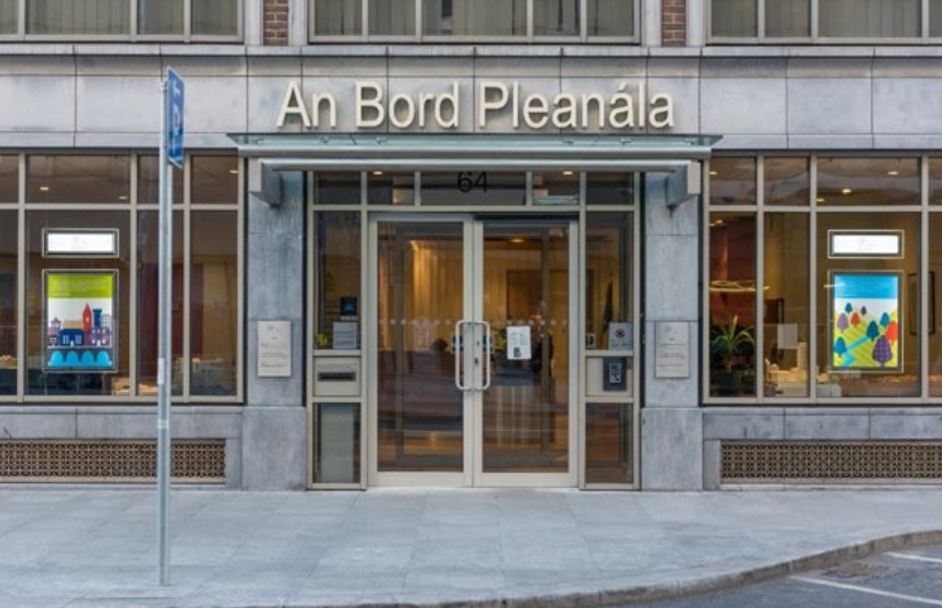An Bord Pleanála has confirmed to Agriland that it received over 650 appeals from landowners across the country in relation to the Residential Zoned Land Tax (RZLT).
The RZLT will apply to land that is zoned for residential use and has access to services such as water supply, roads and lighting.
It is being introduced as part of the government’s Housing for All plan to activate land for residential development throughout the country.
The tax – which will be calculated at 3% of the market value of land “in scope” – will operate on a self-assessment basis.
RZLT
As part of Budget 2024, the government announced that it would extend the liability for landowners impacted by the RZLT by one year until February 2025.
Minister for Finance Michael McGrath said the tax “is an important initiative to activate suitably zoned and serviced land for housing”.
“It is important that affected landowners have sufficient opportunity to engage with the mapping process and that a fair and transparent process is applied when the local authorities consider what land should be placed on the RZLT maps,” he said.
A draft revised final RZLT map will be published on February 1, 2024.
Appeals
Last year, local authorities published draft RZLT maps outlining which lands would be subject to the new annual tax.
As part of that process landowners had one month from date of notification from the local authority to lodge an appeal to the inclusion of their land on a draft RZLT map.
Landowners were given a deadline of September 1 to make an appeal in relation to the supplementary maps produced by local authorities.
The vast majority of the appeals, made by landowners to An Bord Pleanála during April and May, relate to draft RZLT maps drawn up by local authorities.
There are 21 further appeals from landowners related to the supplementary maps.

Of the 653 appeals made from March 26 to September 1, the planning board decided to confirm the determination of the local authority and rejected the appeal in 447 cases.
In 117 cases, the board set aside the determination of the local authority and allowed the appeal of the landowner.
There were 34 cases in which the board partly allowed the appeal.
According to the data provided by An Bord Pleanála to Agriland, decisions were awaited in 30 cases at the start of November.
21 appeals were deemed by the board to be invalid, while three appeals were withdrawn.
The data shows that the local authority with the highest number of appeals to An Bord Pleanála was Fingal County Council in Dublin at 84.
This was followed by Cork County Council with 70 appeals and Cork City Council with 43 appeals.
The following table provides a full breakdown of the appeals made by local authority area:
Local authority Number of RLZT appeals Carlow County Council 7 Cavan County Council 3 Clare County Council 15 Cork City Council 43 Cork County Council 70 Donegal County Council 27 Dublin City Council North 40 Dublin City Council South 28 Dun Laoghaire Rathdown County Council 32 Fingal County Council 84 Galway City Council 9 Galway County Council 18 Kerry County Council 30 Kildare County Council 25 Kilkenny County Council 12 Laois County Council 9 Leitrim County Council 10 Limerick City and County Council 10 Longford County Council 1 Louth County Council 4 Mayo Council Council 17 Meath County Council 7 Monaghan County Council 31 Offaly County Council 5 Roscommon County Council 1 Sligo County Council 13 South Dublin County Council 14 Tipperary County Council 21 Waterford City and County Council 36 Westmeath County Council 10 Wexford County Council 2 Wicklow County Council 18
There have been numerous calls from farm organisations and politicians for farmers to exempted from the tax.
Analysis from the Irish Farmers’ Association (IFA), using the average price of zoned land outside of Dublin, previously estimated that farmers could face a tax bill of over €2,600/ac/yr under the current legislation.
The Irish Cattle and Sheep Farmers’ Association (ICSA) said described the tax as “nothing less than a land grab which will destroy family farms that have committed no offence except to farm near cities, towns, and villages”.
